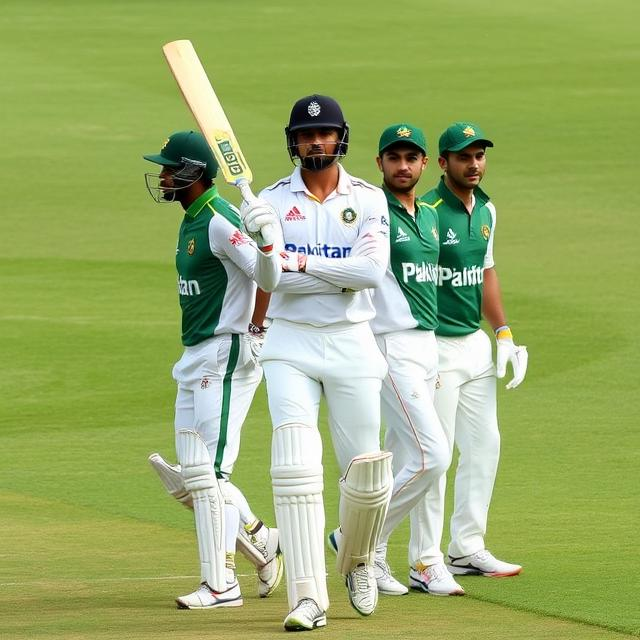Bilal Quereshi and the Gaddafi Stadium: A Pakistani Cricket Legacy

Bilal Quereshi and the Gaddafi Stadium: A Pakistani Cricket Legacy
The echoes of past triumphs, the roar of a packed stadium, and the memories of legendary battles – these are the elements that define the legacy of the Gaddafi Stadium in Lahore. This iconic venue has witnessed countless pivotal moments in Pakistani cricket, and it’s inextricably linked to the names of players and administrators who have shaped the sport’s history in the country. One such name, rising from the background of the Pakistani cricket scene, is Bilal Quereshi, a figure whose work often goes unnoticed but played a crucial role in the stadium’s operation.
This article delves into the relationship between Bilal Quereshi and the Gaddafi Stadium, examining his contributions to the Pakistani Cricket Board (PCB) and exploring the significance of the stadium’s place in Pakistani cricketing history. We’ll uncover the challenges faced by the stadium and the wider PCB, illuminating the factors contributing to its current state and future prospects.
A Historic Venue: Gaddafi Stadium in Lahore
The Gaddafi Stadium, an impressive cricketing arena, has become synonymous with passionate Pakistani cricket fans. It has hosted numerous memorable matches, both home and international, drawing in a sea of spectators who have witnessed incredible cricketing action firsthand.
A Deeper Look at the Infrastructure
The stadium boasts a captivating history, having hosted iconic encounters that have shaped the narrative of Pakistani cricket. Its capacity and accessibility have played a significant role in fostering a strong fan base and creating a vibrant sporting atmosphere.
But beyond the impressive infrastructure and the thrill of the game, the stadium is also a reflection of the larger narrative surrounding Pakistani cricket, a story intertwined with national pride, cultural significance, and the tireless efforts of those who have worked to maintain it, like Bilal Quereshi.
Bilal Quereshi’s Role: From the Background to the Forefront
Bilal Quereshi’s role within the PCB is not always explicitly highlighted in the mainstream. Often, the spotlight shines on the big names, the captains, the iconic batsmen, and the record-breaking bowlers. But the behind-the-scenes work, the administrative efforts, and the tireless commitment to maintaining the quality of the playing surface, the grounds, and the overall experience of the stadium are just as crucial. Quereshi, through his unassuming dedication, has undoubtedly played a vital, though subtle, role in the functioning of the stadium and the overall operations of the PCB.
Tracing his career path reveals a dedication to the sport that extends beyond the public glare. His journey showcases a commitment to ensuring that the Gaddafi Stadium, with its rich history, remains a vibrant part of the cricketing landscape, continuing to host momentous matches and unforgettable experiences for years to come.
Challenges and Opportunities Facing the PCB
The PCB, like many sports boards globally, faces a complex web of challenges. Maintaining stadiums like Gaddafi in top condition requires significant investment. The ever-evolving world of cricket demands constant adaptation, from adhering to international standards to evolving fan expectations. These challenges present opportunities to bolster the board’s standing. Optimizing the use of the stadium and maximizing revenue potential, while ensuring the safety and comfort of spectators, are all integral parts of the equation.
Modernizing facilities, enhancing spectator experience, and optimizing revenue generation are crucial components of future strategies. Effective management and efficient administration are critical in meeting these challenges, which is where figures like Bilal Quereshi undoubtedly play an important, though often unseen, part.
The Future of Pakistani Cricket and Gaddafi Stadium
The future of Pakistani cricket hinges on the continued success of venues like the Gaddafi Stadium. Maintaining the tradition of passionate cricket fans while simultaneously adapting to the modern sporting landscape is a key part of this future. Improved infrastructure, enhanced fan experiences, and shrewd management are essential ingredients for the sustained success of this and other venues.
The PCB needs to embrace technological advancements to enhance the fan experience, from online ticketing platforms to interactive stadium displays. This ongoing evolution ensures that Pakistani cricket remains relevant and exciting for the present and future generations.
Furthermore, fostering a more inclusive and equitable environment will not only benefit the players and staff but also help create a more vibrant and sustainable cricketing ecosystem. This is where the PCB has a real opportunity to truly make a difference.
Bilal Quereshi’s role, and the role of many others in similar capacities, becomes increasingly important in these endeavors. They are the driving force behind the day-to-day operations, the ones ensuring the smooth functioning of the entire operation.
Conclusion: A Legacy of Cricket
The Gaddafi Stadium is much more than a stadium; it’s a monument to Pakistani cricketing history. It’s a place where legends have been born, where dreams have been realized, and where the roar of the crowd reverberates through time. Its future success depends not just on the brilliance of the players on the field but also on the dedication of individuals like Bilal Quereshi who work tirelessly behind the scenes to ensure that this iconic venue continues to thrive.
Bilal Quereshi and the many unsung heroes of the PCB stand as a testament to the dedication and commitment necessary to preserve and grow the rich tradition of Pakistani cricket. The future of Pakistani cricket, and the continued success of the Gaddafi Stadium, relies on the efforts of such individuals and their commitment to the sport.
The legacy of Gaddafi Stadium is a powerful reminder of the enduring passion for cricket in Pakistan, a sport that binds generations and cultures.